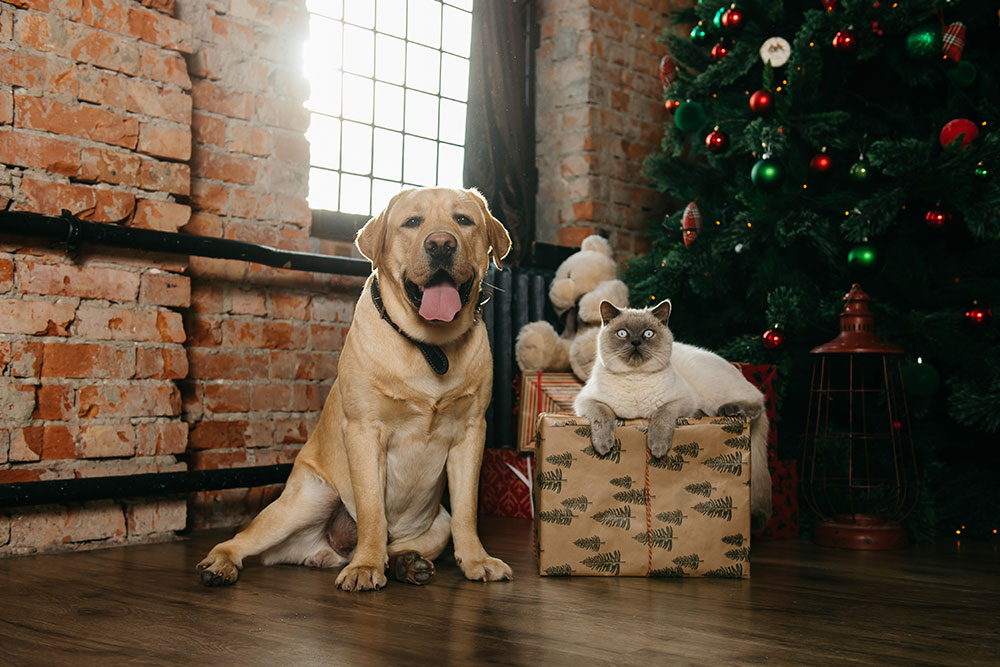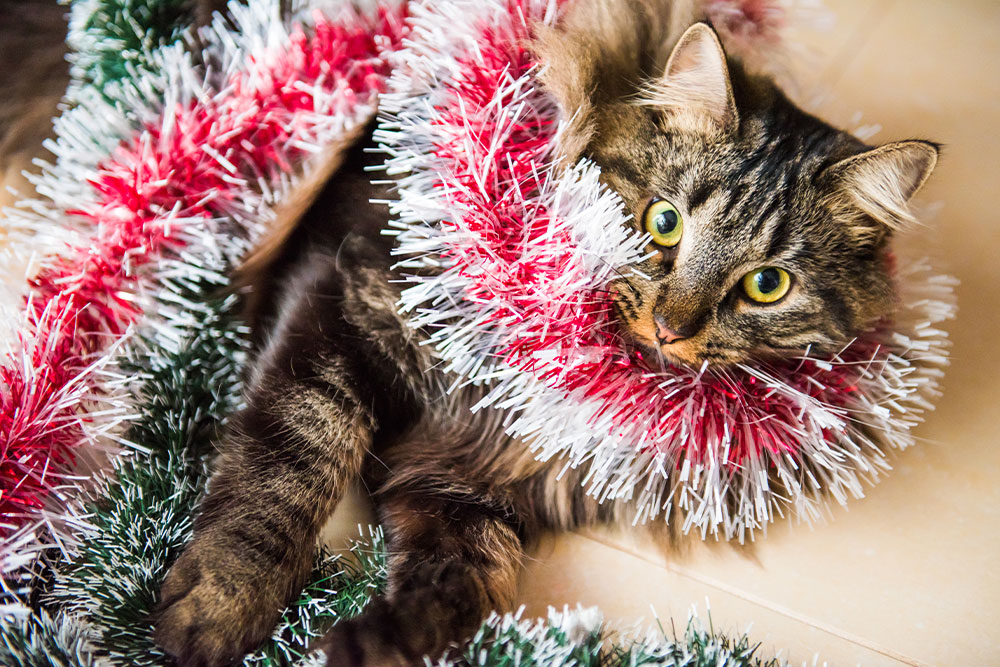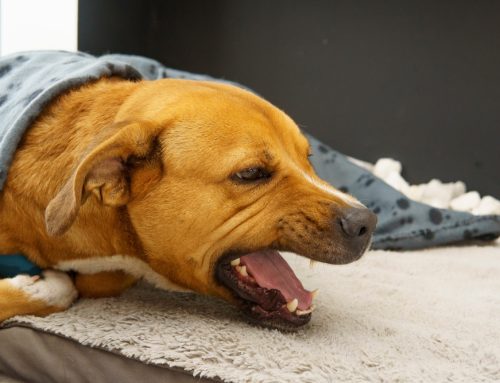Holiday Safety Tips for Your Pets
The holiday season is a time for joy, celebration, and togetherness. However, for pet owners, it can also bring unique challenges and potential hazards that could compromise the safety and well-being of their beloved animals. This expanded guide will explore the medical and behavioral aspects of holiday hazards, providing comprehensive strategies for prevention and incident management.
Common Holiday Hazards for Pets
Foods and Beverages
The holiday season often includes an abundance of food and drink, some of which can be extremely harmful to pets.
Medical Perspective
- Chocolate: Our favorite treat contains theobromine and caffeine, both of which are toxic to dogs and cats. Symptoms of poisoning include vomiting, diarrhea, increased heart rate, and even seizures or death. The toxicity level depends on the type of chocolate (dark chocolate being the most dangerous) and the size of the pet.
- Xylitol: This artificial sweetener found in sugar-free candies and gums can cause insulin release, leading to hypoglycemia (low blood sugar), seizures, and liver failure in dogs.
- Alcohol: Even small amounts of alcohol can be dangerous, leading to vomiting, diarrhea, central nervous system depression, difficulty breathing, tremors, and possibly coma.
Long-Term Effects
Without prompt treatment, ingestion of these substances can lead to long-term health issues, including organ damage or failure.
Emergency Symptoms
Look for signs like vomiting, excessive drooling, tremors, or lethargy. If you suspect your pet has ingested a toxic substance, contact us immediately to discuss emergency care options.
Decorations
Decorations bring festive cheer but can pose significant risks to pets if not managed carefully.
Behavioral and Medical Considerations
- Tinsel and Ornaments: Cats, in particular, are drawn to shiny objects like tinsel, which can cause severe intestinal blockages if ingested. Symptoms include vomiting, lack of appetite, and a change in normal bowel movements.
- Electrical Lights and Cords: Pets might chew on cords, leading to burns or electrocution. Ensure that all wires are covered or out of reach to prevent such accidents.
Prevention Tips
Secure decorations on higher shelves or use pet-safe alternatives. Choose shatterproof ornaments and avoid leaving candles unattended.
Plants
Holiday plants can add beauty to your home but often come with hidden dangers.
Toxicity Concerns
- Poinsettias: While not as deadly as once believed, they can still cause mild irritation to the mouth and stomach.
- Mistletoe and Holly: These are more dangerous, potentially causing gastrointestinal upset and even cardiovascular problems if ingested.
Long-Term Consequences
Repeated exposure to these plants can lead to chronic digestive issues or more severe systemic effects.
Prevention
Opt for silk or artificial plants, or research pet-safe alternatives to traditional holiday greenery.
Diagnosing and Treating Holiday-Related Emergencies
Diagnosis
Accurate and timely diagnosis is crucial. At Companion Veterinary Clinic, we utilize advanced diagnostic tools to assess and treat emergencies effectively. Blood tests, X-rays, and ultrasounds are among the techniques we employ to identify the severity and nature of the problem.
Treatment
Treatment varies depending on the hazard:
- For Food Toxicity: Inducing vomiting (if caught early), administering activated charcoal, and providing supportive care like IV fluids.
- For Plant Ingestion: Depending on the plant, treatment may involve inducing vomiting, fluid therapy, and medications to protect the gastrointestinal tract.
- For Foreign Body Ingestion: Surgery might be required to remove obstructions, especially if they pose a risk of perforation or severe blockage.
Outcomes
Prompt treatment generally leads to a positive outcome, but delayed intervention can result in prolonged recovery or permanent damage. Regular follow-ups with our team ensure recovery is on track.

Preventive Measures at Home
Home Safety Checklist
- Secure Environment: Keep all hazardous items out of reach. Use pet or child gates to block off unsafe areas.
- Food Storage: Store food securely and dispose of leftovers promptly to avoid accidental ingestion.
- Pet-Safe Alternatives: Use pet-friendly decorations and keep plants that are known to be safe for animals.
FAQs and Tips
- What should I do if my pet shows signs of distress? Immediately remove the hazard if possible and contact your veterinarian.
- Can I include my pet in holiday meals? Yes, but ensure any treats are specifically made for pets or are safe, plain meats and vegetables without seasoning.
The Role of Regular Veterinary Care
Regular check-ups are vital, especially during the holiday season. These visits allow for discussions on preventive care and provide an opportunity to update vaccinations and medications. For more information on our services, visit our Wellness & Preventive Care page.
How Companion Veterinary Clinic Supports You
Our team is equipped to handle all of your holiday questions and concerns. We offer:
- Emergency Services: Available during business hours to address urgent health concerns.
- Routine Check-ups: Pre-holiday examinations to ensure your pet is healthy and ready for the festivities.
- Professional Advice: Our staff can offer tailored advice to help you navigate the holiday season safely with your pets. Visit our Contact Us page to schedule an appointment or for immediate assistance.
By taking proactive steps to safeguard your pets during the holidays, you can help prevent emergencies and ensure a safe, joyful season. Companion Veterinary Clinic is here to support you every step of the way, offering high-quality care and guidance. Consider scheduling a pre-holiday check-up today and keep our contact information handy for any questions. Together, we can make this holiday season safe and enjoyable for all.







Leave A Comment